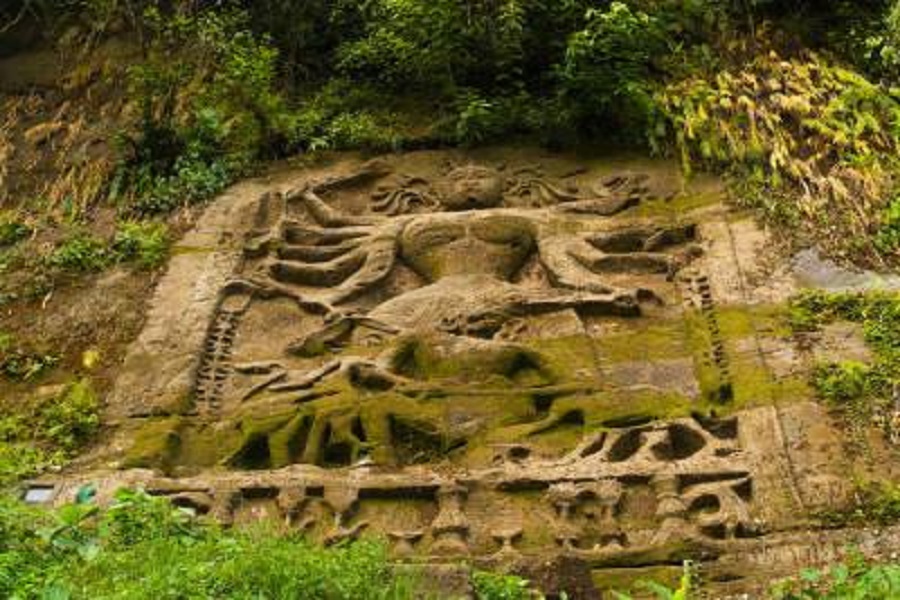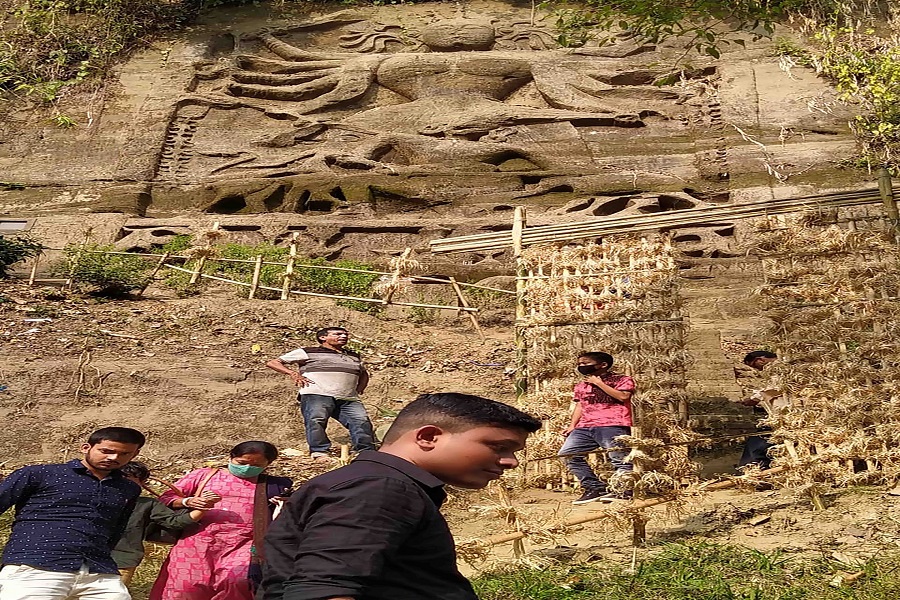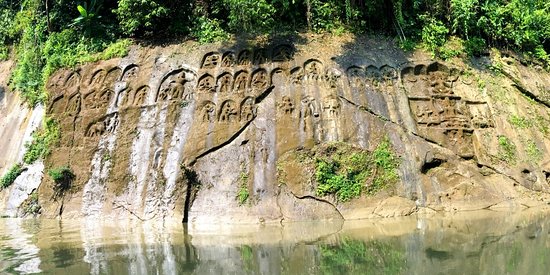Mysterious 15th-century rock carvings dotKalajhari Hills in Tripura attracts tourists

By Jayanta Bhattacharya Nov 08, 2022
Written By- Jayanta Bhattacharya
Devtamura (Tripura), Nov 7: Devtamura, a nondescript place in Tripura where panels of 15th-century rock carvings exist on the steep slopes of a hill along the banks of the Gomati river, is poised to welcome tourists, thanks to an initiative of the state government.
The carvings have 37 sculptures of Hindu deities like Shiva, Ganesha, Kartikeya, Mahisasur Mardini, and Durga on the Kalajhari Hills.
It is not known who carved the figures of gods and goddesses in this remote place inhabited by Jamatiya and Reang tribes.
The chiselled wonder also known as Chabimura, 75 km from the state capital Agartala, had been pushed to obscurity by decades-old insurgency and a lack of proper infrastructures like roads and accommodation facilities.
State Tourism minister Pranajit Singha Roy said the tourism infrastructure of the state is being developed so that footfalls of visitors increase to the archaeological site at Devtamura.
“Tourism brings together different cultures and creates good people-to-people relationships. We are attaching maximum importance to this sector and creating more infrastructure to increase footfalls of tourists”, he said.
The state is witnessing a steady rise in the number of tourists after the coronavirus pandemic, the minister said.
The complete stretch of 12 km between Amarpur, a sub-divisional town, to Devtamura in the Gomati district was recently widened, a tourist lodge was constructed and a boating facility was introduced to attract more visitors, Singha Roy said.
One can reach the banks of the Gomati river in a car and then undertake the rest of the journey by boat.
Historian Jahar Acharjee, who studied the carvings for his article on rock-cut sculpture, wrote that available evidence suggests that some soldiers, who were hiding in the area during a Muslim attack in the 15th century, had made them.
the 15th century, had made them.
However, writer Panna Lal Roy, who also studied the sculptures, contradicted Acharjee's contention, saying "there is no historical evidence to support it and that it needs more research to find the creators' '.
In 'Rajmala', a historical chronicle of Tripura, it was mentioned that the local Reang tribes, who rebelled against the Manikya kings, named the place Devtamura.
The tribes later became loyal to the Mankiya kings, Roy said.
The area also deserves to find a place in the tourists' diary for its lush green vegetation dotted with beautiful bamboo-straw huts of tribals.
The hill ranges are covered with thick jungles and the area is also an eco-tourism centre.
The first panel measures 10.3 m in (height), is spread over a length of 28 m, and is south-facing. The monolith on which the carvings were done stands at an almost 90-degree angle.
The area to the right of the panel extends up to 60 m where some other sculptures existed. At present some of them have been lost due to weathering and sliding of the rock panels.
The second image of Mahishasurmardini, about one km away from the first panel, stands at a height of over 10 m from the river bed. It is the largest of all carvings and the locals worship the deity as Chakrak-Ma.
The carving is 10.70 m high and 7.70 m wide. The face is round in shape. The rock cut image has ten arms and it is seen holding weapons in nine arms and the lower one is seen holding the hair of the demon king. The weapons are mostly indistinct due to erosion and the growth of weeds.
Manas Paul, who authored 'Eye witness', a book on militancy in Tripura, says during three decades of insurgency Devtamura was completely inaccessible till 2004 as the place was infested by the National Liberation Front of Tripura (NLFT).